All the goddesses, from India to Nigeria, that Beyoncé channeled in her divine Grammy performance
We’ve long known that Beyoncé walks like a goddess among us. Her performance at Sunday night’s Grammy awards, pregnant with twins and glowing, drove that point home.
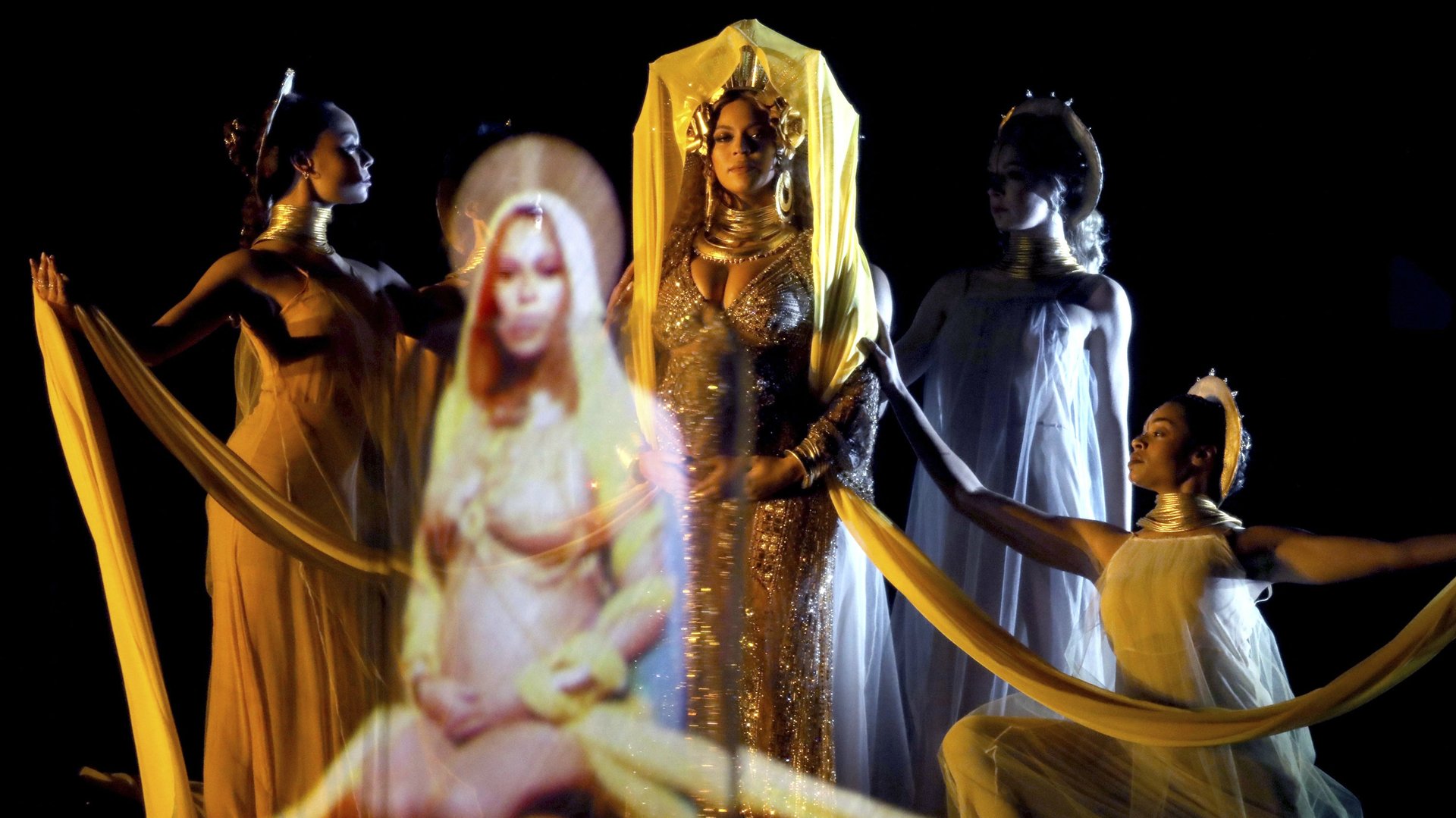

We’ve long known that Beyoncé walks like a goddess among us. Her performance at Sunday night’s Grammy awards, pregnant with twins and glowing, drove that point home.
In the visual album for Lemonade last year, we saw the American pop star as the Yoruba deity (or orisha) Oshun. Then, with her recent pregnancy announcement, there were visual references to both the Catholic Madonna and the orisha of the water, Yemoja (also known as Yemaya, Yemanjá, and Mami Wata). Many of the goddesses Beyoncé has recently referenced are of of African origin—but for last night’s Grammys, she didn’t stop there.
Here are a few of the female deities we saw Beyoncé channel last night onstage.
Oshun
Oshun—also known as Osun, Oxúm, and Ochún—is the beloved Yoruba fertility goddess who brings music and dance. She is commonly associated with fresh water, rivers, and waterfalls, and known to display human attributes such as vanity and jealousy. She wears a signature marigold-yellow dress—a signifier that was not lost on viewers of last night’s performance, or close-watchers of Lemonade.
Durga
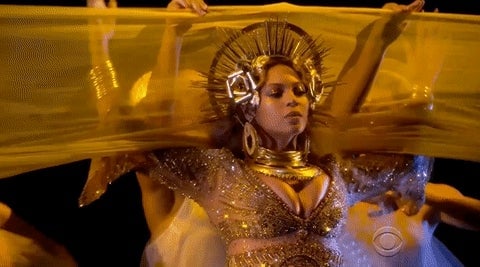
Thanks to video effects, saffron-colored scarves, and her dancers, Beyoncé appeared to have many arms—a characteristic of many Hindu deities. While Vox (like many conspiracy theorists before) saw Kali—a fierce Hindu goddess known for her man-beheading—we also see Durga, another mother goddess, who often appears golden, with eight or ten arms to slay the haters.
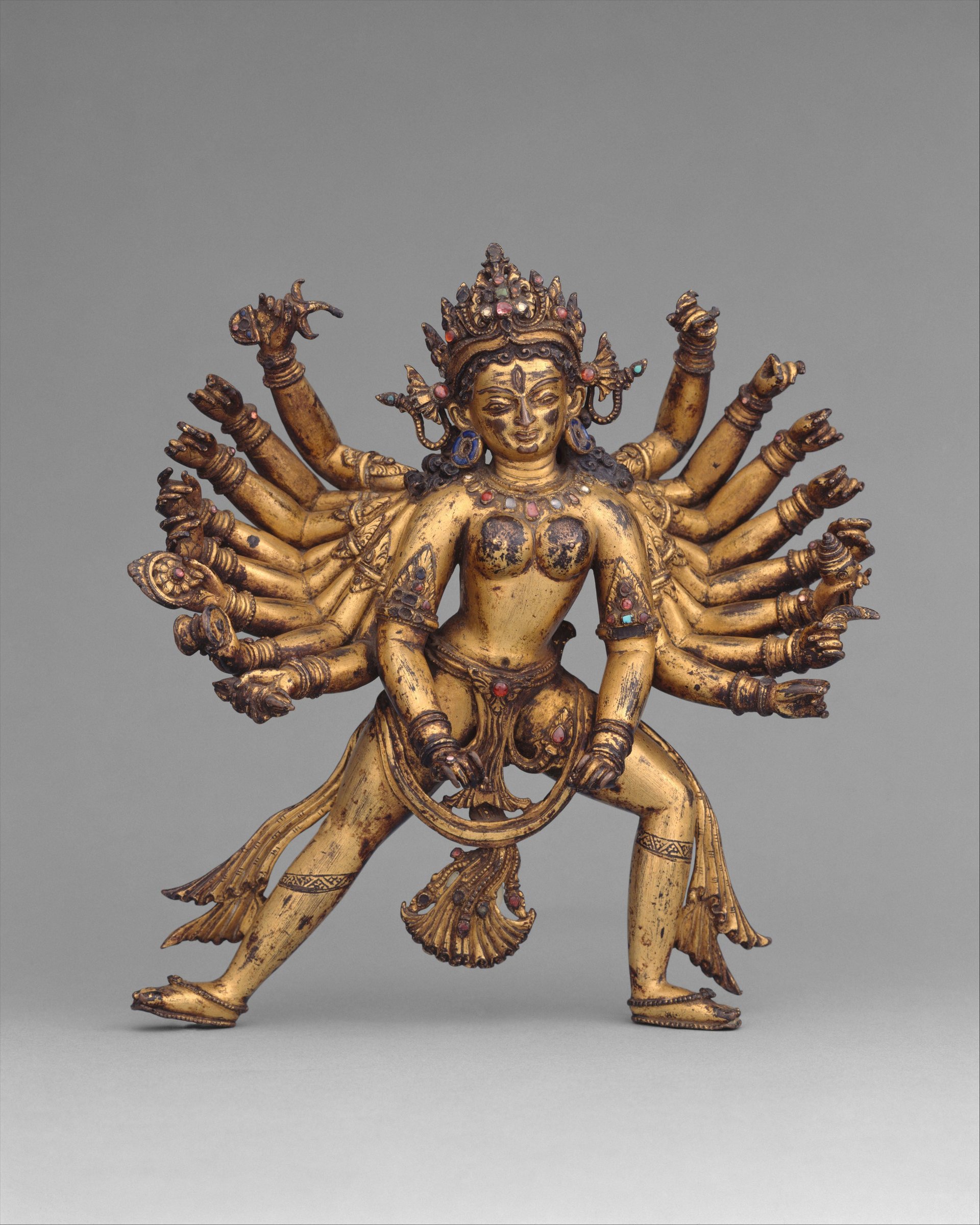
The Virgin Mary
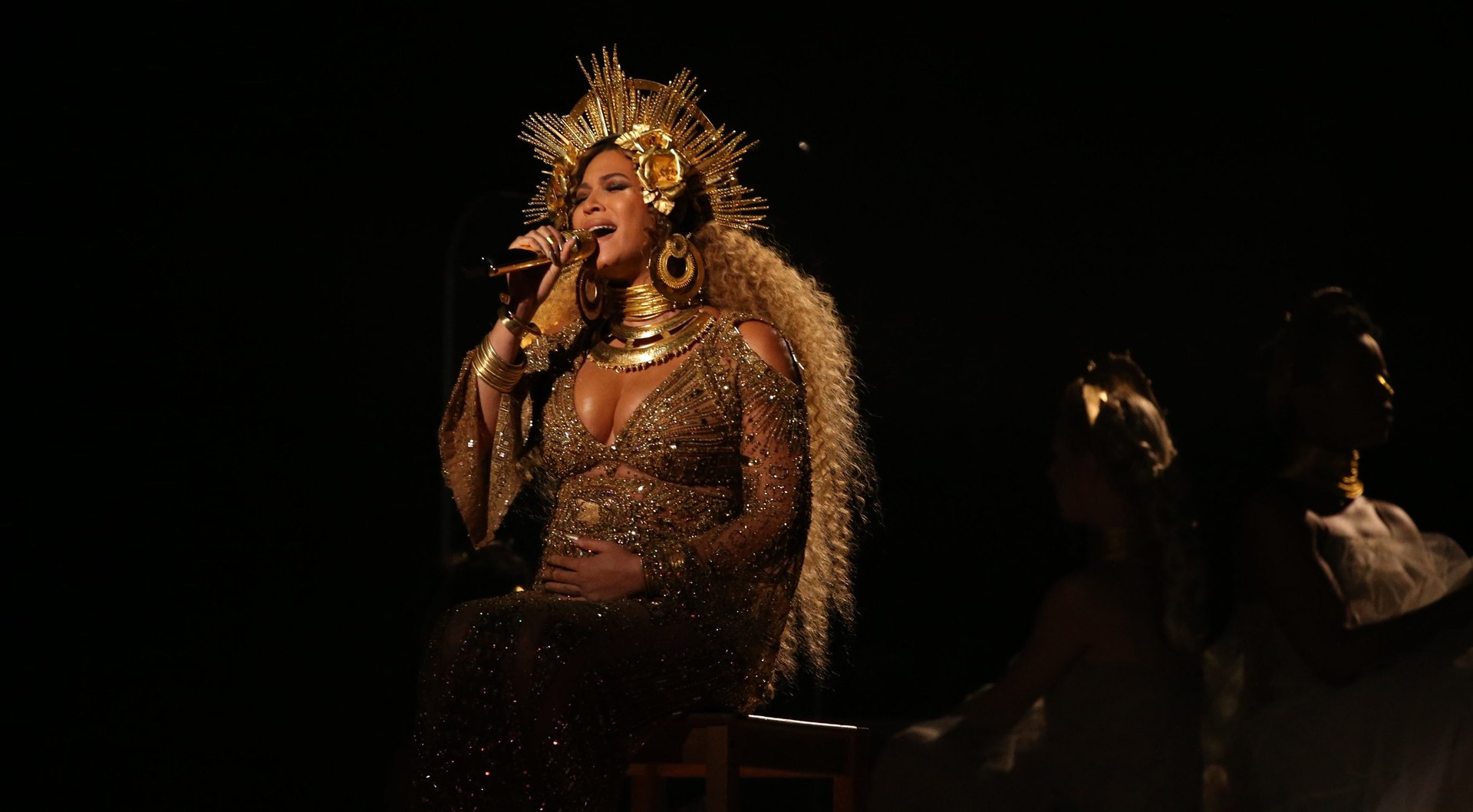
Beyoncé’s golden halo was also an unmistakeable a reference to the Madonna (AKA the Virgin Mary) last night, as it was in her pregnancy announcement. Mary is revered for her patience and humility, and for giving birth to the baby Jesus.
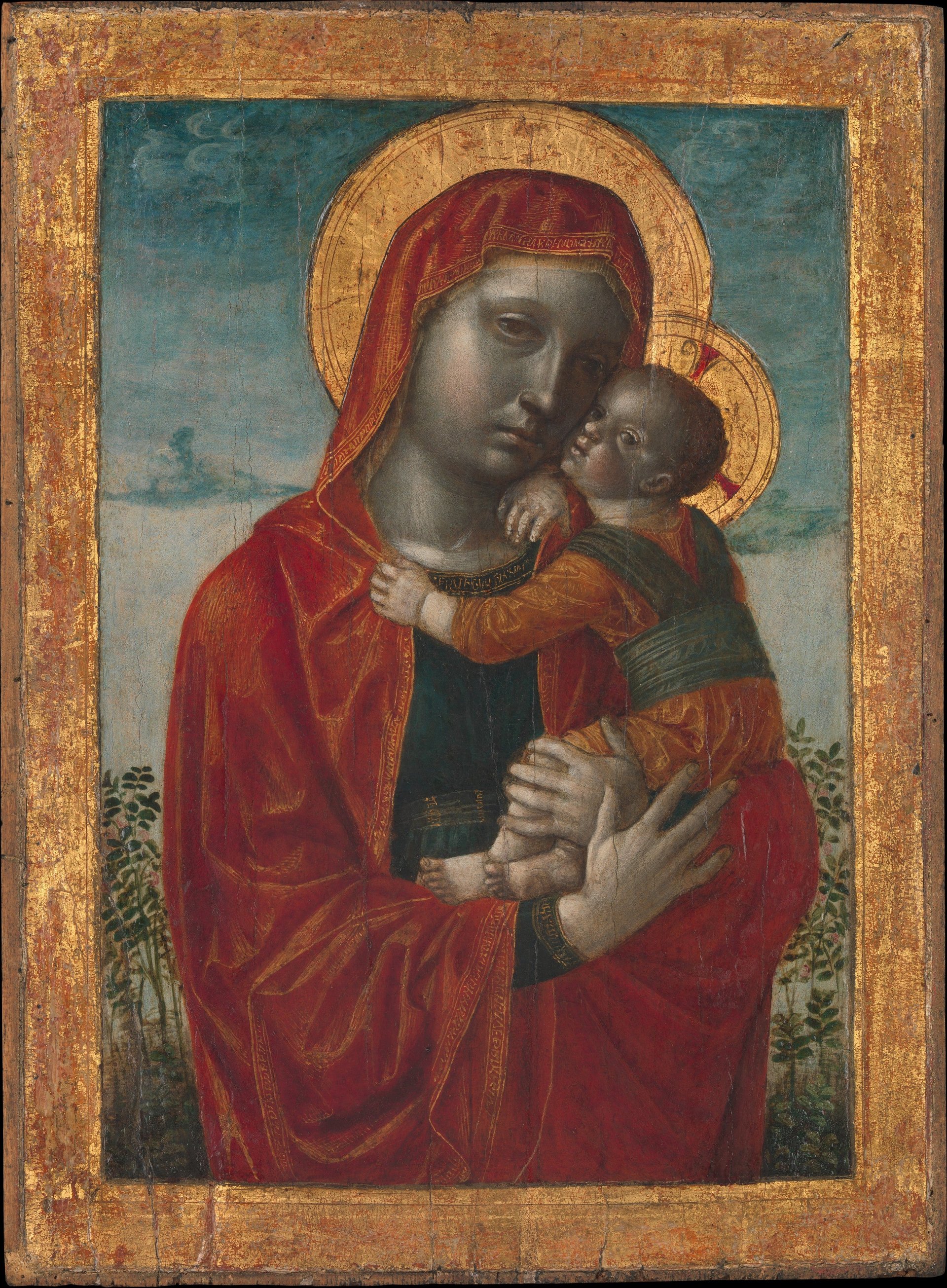
To accept her best urban contemporary album award last night, Beyoncé wore a slightly more modest—but no less Mary-ish—headpiece: a veil resembling those that many Catholic women wear to attend mass.
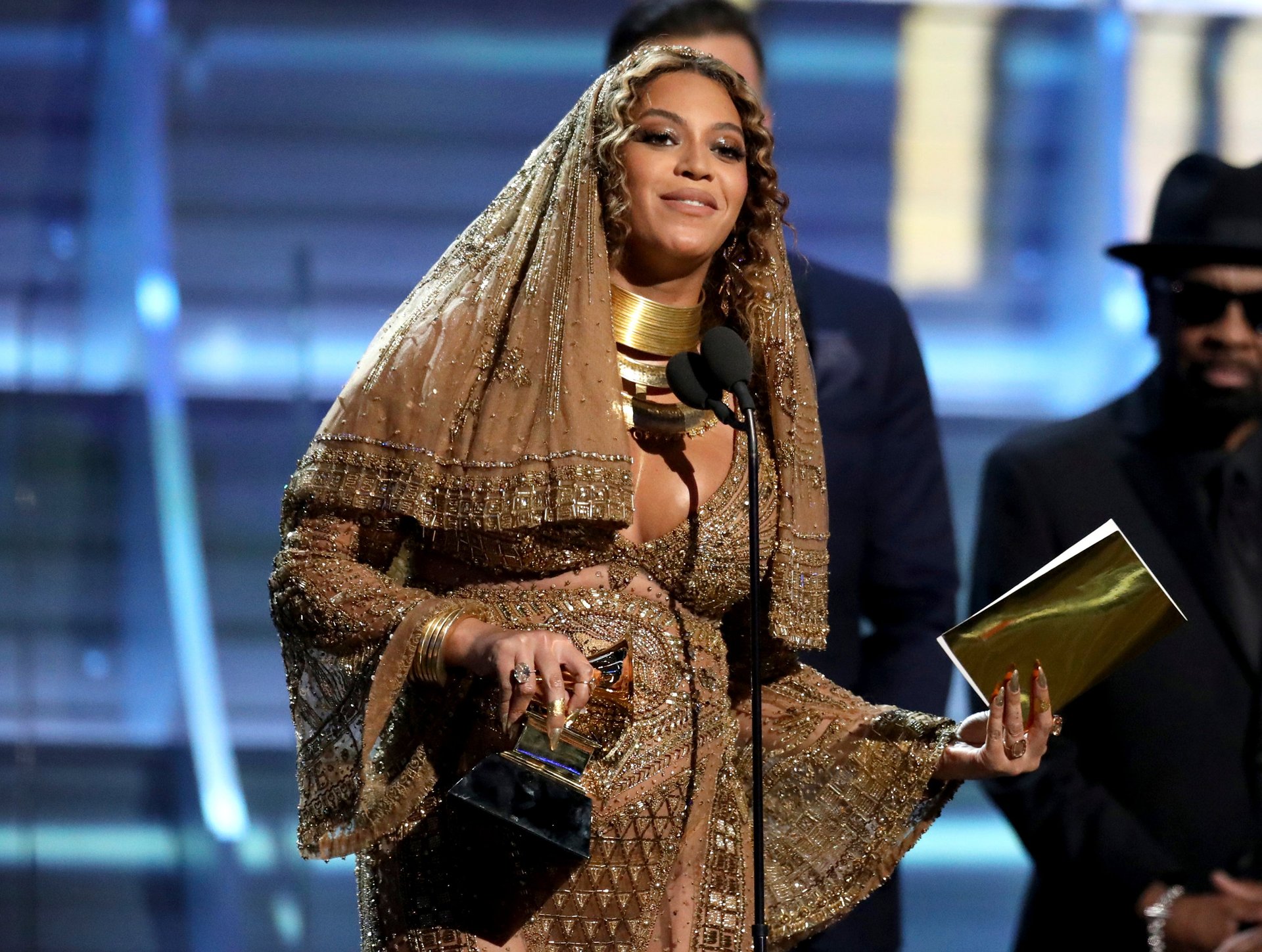

While some may have seen Mary in the beaded veil, others may have seen the heavily embroidered head-covering of a Pakistani Muslim bride. Perhaps it’s fitting that Beyoncé’s outfit for delivering a message of tolerance and girl power was filled with multicultural references to femininity and divinity.
Correction: Due to an editing error, an earlier version of this post incorrectly referred to the Christian concept of the “Immaculate Conception.” That term refers to the doctrine that God preserved the Virgin Mary from the taint of original sin from the moment she was conceived.